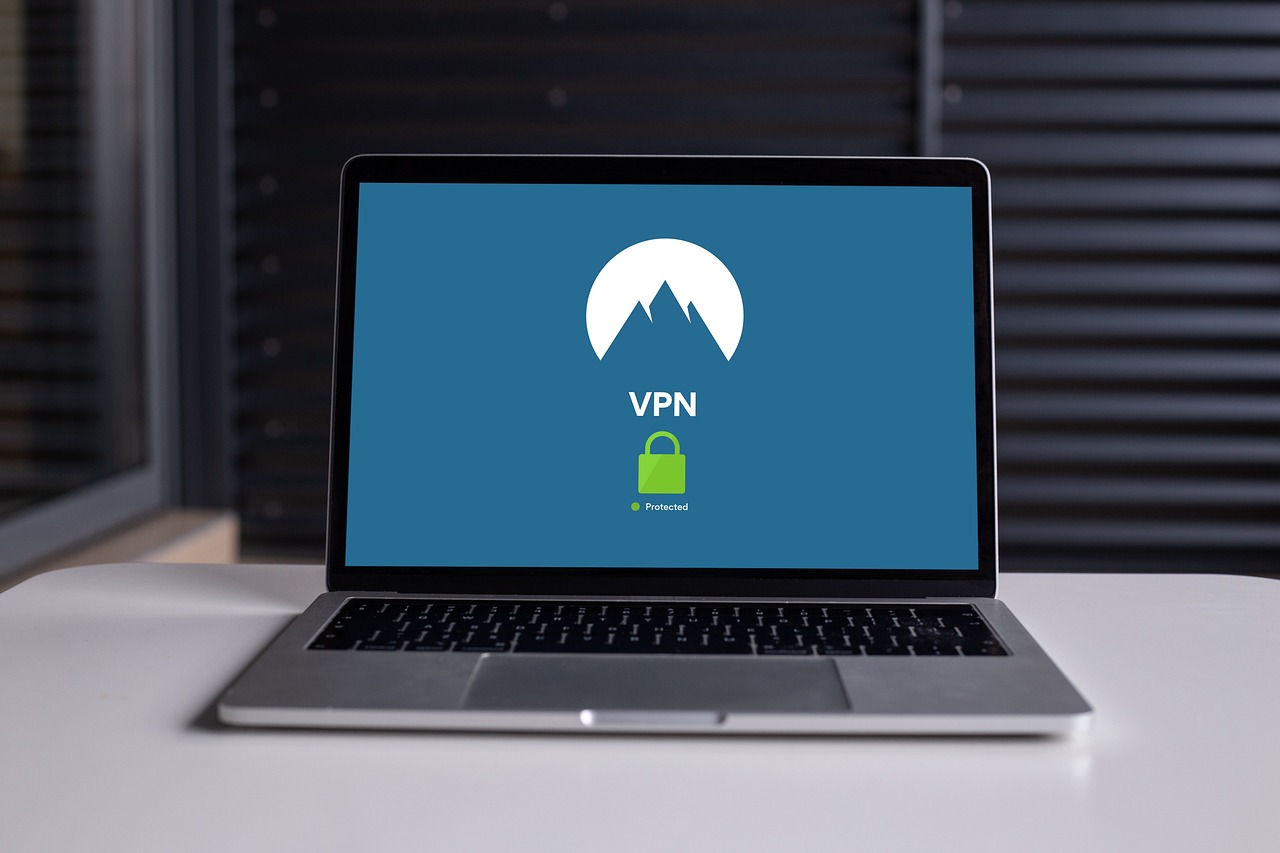Category: Technology

How Social Media Algorithms Are Rewiring Our Brains
- by Noel Shaffer
- 4 months ago
- 0 comments
The Invisible Code Behind Every Scroll
 Every time you refresh a feed, an invisible system decides what you see first. These algorithms study your taps, pauses, and shares like a hawk watching prey. They use that information to predict which posts will keep you glued to the screen. This constant prediction cycle is not random; it’s deliberate engineering built on behavioral data. Many people think they are choosing content freely, but their choices are shaped long before they act. Over time, this silent influence starts to train the brain to expect novelty and instant gratification.
Every time you refresh a feed, an invisible system decides what you see first. These algorithms study your taps, pauses, and shares like a hawk watching prey. They use that information to predict which posts will keep you glued to the screen. This constant prediction cycle is not random; it’s deliberate engineering built on behavioral data. Many people think they are choosing content freely, but their choices are shaped long before they act. Over time, this silent influence starts to train the brain to expect novelty and instant gratification.Dopamine Loops and Shortened Attention Spans
Echo Chambers and Cognitive Bias
Reclaiming Control of Your Digital Mind


How to Optimize Software Performance: Techniques and Best Practices
- by Noel Shaffer
- 1 year ago
- 0 comments
Optimizing software performance is essential in today’s fast-paced digital landscape, where users demand speed, reliability, and efficiency. Nashville Software Development Agency and other similar tech firms highlight how poorly performing applications frustrate users and risk loss of business and reputation. Developers can ensure their software meets high-performance standards by employing effective techniques and best practices while delivering a seamless user experience. Below are details on how to boost and optimize software performance.
Understanding Software Performance Optimization
Software performance optimization involves improving an application’s speed, efficiency, and resource usage. The goal is to make software responsive, scalable, and cost-effective on local machines, mobile devices, or cloud platforms. This process requires identifying bottlenecks, enhancing code efficiency, and using the right tools to maintain quality standards.

Writing Efficient Code
One of the foundational steps in optimizing software performance is writing efficient and clean code. This involves using algorithms and data structures best suited for the task. Developers should also minimize redundant operations and ensure their code is easy to read and maintain. For instance, choosing a hash table over a linear search for lookups in large datasets can significantly reduce processing time. Similarly, adhering to coding standards and conducting regular code reviews helps prevent performance-related issues from creeping into the software.
Leveraging Profiling Tools
Profiling tools are invaluable for identifying performance bottlenecks. These tools analyze an application’s runtime behavior, pinpointing areas that consume excessive resources or take too long to execute. Popular profiling tools like VisualVM, Py-Spy, and Perf help developers focus on the most critical performance issues. By understanding which functions or modules are underperforming, developers can prioritize optimization efforts effectively, avoiding unnecessary changes in areas that don’t impact performance significantly.
Optimizing Database Interactions
Databases often serve as the backbone of modern applications, and optimizing their interactions is key to better performance. Poorly designed queries or unindexed tables can slow down an entire application. Techniques such as query optimization, proper indexing, and caching frequently accessed data can significantly improve database performance. Additionally, using database connection pooling and minimizing unnecessary calls to the database helps reduce latency and server load.
Utilizing Caching and Content Delivery Networks
Caching involves storing frequently accessed data temporarily to avoid repetitive processing. Implementing caching strategies at both the client and server sides can greatly enhance software performance. For applications that deliver content, using Content Delivery Networks (CDNs) helps distribute data efficiently by bringing it closer to end users. This reduces latency and ensures a smooth experience, especially for global audiences.

Ensuring Efficient Memory Management
Memory leaks and inefficient memory usage can cripple software performance. Developers must carefully monitor memory allocation and deallocation, using tools like Valgrind or Java Memory Analyzer to identify and fix issues. Additionally, adopting garbage collection techniques and optimizing object lifecycle management can help minimize memory wastage, keeping the application running smoothly.
Embracing Asynchronous Programming
Asynchronous programming allows applications to perform tasks concurrently, improving responsiveness. Multithreading and event-driven programming help optimize applications that require simultaneous processing, such as web servers or real-time communication platforms. By delegating non-critical tasks to background threads or asynchronous queues, developers can ensure that the main application remains responsive, even during heavy loads.
Regular Testing and Monitoring
Performance testing should be an integral part of the development lifecycle. Tools like JMeter, LoadRunner, and Apache Benchmark simulate real-world usage scenarios, helping developers understand how their application performs under stress. Continuous monitoring post-deployment is equally critical. Developers can proactively address potential issues before they impact users by tracking performance metrics such as response times, error rates, and server utilization.
Conclusion
Optimizing software performance is not a one-time effort but an ongoing process that evolves alongside technology and user expectations. Developers can ensure their applications remain fast, reliable, and scalable by adhering to best practices such as writing efficient code, leveraging caching, and regularly testing and monitoring. Embracing performance optimization as a core principle of development fosters technical excellence, user satisfaction, and business success.…
Read More
VPN vs. Proxy: Understanding the Biggest Differences and Benefits
- by Noel Shaffer
- 2 years ago
- 0 comments
Does your online business have to deal with lots of information requests that sometimes can be malware or other cyber threats? If your answer is yes, then you really need solid protection that can guarantee the security of your network. Among many, you may be confused about choosing between vpn and aproxy. Both of them are used to keep your business information safe, but there are some differences between the two that you should understand. So, how do you know which one is right for your business? In this article, we’ll provide a detailed look at the biggest differences and benefits of VPNs and proxies.
Encryption
 When it comes to encryption, both VPNs and proxies play a role in safeguarding your online activities. But VPNs use advanced encryption protocols to create an impenetrable tunnel between your device and the internet, ultimately ensuring that all data transmitted is well-protected from prying eyes. This level of encryption is vital for maintaining privacy and security while doing your job, even when accessing sensitive information. On the other hand, proxies also offer some level of encryption but may not provide the same robust protection as VPNs. Proxies primarily act as intermediaries between you and the websites you visit, masking your IP address but potentially leaving your data vulnerable to interception.
When it comes to encryption, both VPNs and proxies play a role in safeguarding your online activities. But VPNs use advanced encryption protocols to create an impenetrable tunnel between your device and the internet, ultimately ensuring that all data transmitted is well-protected from prying eyes. This level of encryption is vital for maintaining privacy and security while doing your job, even when accessing sensitive information. On the other hand, proxies also offer some level of encryption but may not provide the same robust protection as VPNs. Proxies primarily act as intermediaries between you and the websites you visit, masking your IP address but potentially leaving your data vulnerable to interception.
Connection Type
Aside from the encryption, the connection types for these two are also quite different. Let’s take a closer look at them. VPNs basically create a secure tunnel between your device and the internet, encrypting all data that passes through it. Meanwhile, proxies act as intermediaries between you and the websites you visit. They simply change your IP address without providing encryption for your data. While both options can help mask your IP address, VPNs offer a more secure and comprehensive solution by encrypting all of your internet traffic. This added layer of security makes VPNs a popular choice for those looking to enhance their online privacy and security.
Functionality and Benefits
When it comes to functionality and benefits, VPNs and proxies have distinct advantages. VPNs provide a secure encrypted connection that shields your online activities from prying eyes, ensuring privacy and anonymity. They also offer access to geo-restricted content by masking your IP address, allowing you to bypass censorship or stream region-locked media. On the flip side, proxies act as intermediaries between your device and the internet, offering varying levels of anonymity but without encrypting data like VPNs do. They can be useful for accessing specific websites or hiding your IP address but may not provide the same level of security as a VPN. Both options have their strengths depending on your needs – whether it’s enhanced security and privacy with a VPN or simple web browsing convenience with a proxy.
Final Thoughts: Is Using a VPN Better Than a Proxy?
If privacy, security, and overall internet freedom are your top priorities, then a VPN is the way to go. With its strong encryption protocols and ability to hide your IP address completely, a VPN offers comprehensive protection for all your online activities. But if you simply need to bypass geo-restrictions or access region-locked content occasionally, a proxy may suffice. Proxies are generally faster than VPNs because they do not encrypt data traffic in the same way. However, they lack the robust security features that make VPNs so effective at safeguarding your digital presence.…
Read More
Reasons Recycling Computer Is Essential for Data Security
- by Jonathan Carlisle
- 2 years ago
- 0 comments
Welcome to our blog post, where we delve into why recycling computers is essential for data security. In today’s digital age, protecting sensitive information has become more crucial. With data breaches, identity theft, and corporate espionage on the rise, we must take proactive measures to safeguard both personal privacy and business interests. If you have an old computer used for your business, consider recycling it. In this article, we will explore the various risks associated with improper disposal of computers and highlight how recycling can help mitigate these threats.
Data Breaches

Data breaches have become a prevalent concern in today’s digital landscape. These incidents involve unauthorized access to sensitive data stored on computer systems, often resulting in significant financial and reputational damage for individuals and businesses alike. Hackers are constantly evolving their tactics to exploit vulnerabilities in outdated or improperly disposed of computers. They can gain access to confidential information such as credit card details, social security numbers, passwords, and more. Once this information falls into the wrong hands, it can be used for fraudulent activities or sold on the dark web. One of the primary reasons data breaches occur is due to inadequate measures taken during computer disposal.
Identity Theft
In today’s digital age, protecting our personal information is more crucial than ever. Identity theft has become a prevalent issue, causing significant harm to individuals and businesses alike. Hackers are constantly seeking ways to exploit vulnerabilities in computer systems, making it imperative for us to take proactive measures to safeguard our data. When we dispose of old computers without proper care, we may unknowingly be at risk of identity theft. Our devices store sensitive information such as social security numbers, financial records, and login credentials. If this data falls into the wrong hands, it can lead to devastating consequences. Cybercriminals commonly use dumpster diving – rummaging through discarded electronic devices in search of valuable information.
Corporate Espionage

Data security plays a crucial role in protecting businesses against corporate espionage. When old computers are discarded without proper recycling measures, they become potential sources of valuable data for malicious individuals looking to gain insider knowledge about a company’s operations and strategies. By recycling computers properly, companies can ensure that all data stored on these devices is completely wiped out and cannot be recovered by unauthorized parties. This reduces the risk of corporate espionage and safeguards proprietary information from falling into the wrong hands. Moreover, recycling computers also helps prevent the theft of intellectual property. Companies invest significant resources into research and development to create unique products or services that set them apart from competitors.
Personal Privacy
Unfortunately, many overlook the potential risks of simply throwing away or selling their old computers without properly wiping the data stored on them. This leaves us vulnerable to identity theft and other forms of cybercrime. When recycling computers, it is essential to ensure that all data is securely erased before disposal. Simply deleting files or formatting the hard drive is insufficient, as skilled hackers can still retrieve your information using specialized software. By entrusting your old computer to a reputable recycling company, you know that they will take the necessary steps to protect your personal privacy. These companies employ certified technicians who follow strict protocols for data destruction.
Recycling computers is not just about being environmentally responsible; it also serves as an essential step towards protecting sensitive data from falling into the wrong hands. Whether you’re looking out for your privacy or a business concerned about maintaining client trust and avoiding costly breaches, choosing secure computer recycling methods should be a top priority. So, let’s take action today and consciously try to recycle our old computers responsibly. Doing so can help create a safer digital world for ourselves and future generations.…
Read More
Unlocking the Potential of IPTV: A Look at Access and Availability
- by Jonathan Carlisle
- 2 years ago
- 0 comments
IPTV, or Internet Protocol Television, is a technology that has been steadily gaining popularity in recent years. With its ability to deliver high-quality video content over the internet, iptvaccess has become an attractive option for consumers looking to cut the cord and move away from traditional cable or satellite TV services. However, despite its growing popularity, there are still many questions surrounding the access and availability of IPTV services. In this blog post, we will take a closer look at the potential of IPTV and examine some of the factors that impact its access and availability.
The Rise of IPTV Technology
IPTV (Internet Protocol Television) technology has gained significant prominence and popularity recently. IPTV is a digital television broadcasting protocol that uses the internet to transmit and receive television signals. With the increasing availability of high-speed internet connections and the decline in traditional cable and satellite TV subscriptions, IPTV is becoming a popular alternative to conventional TV broadcasting. In this document, we will explore the rise of IPTV technology, its benefits, and how it rapidly changes how people consume television content.
A Guide to Accessing IPTV
IPTV is an emerging technology that allows users to access television programming through an internet connection. This technology offers many advantages over traditional cable or satellite services, including more channels, better picture quality, and the ability to watch on multiple devices. However, accessing IPTV can be confusing for those who are new to the technology. In this guide, we will explore the different ways of accessing IPTV, including through dedicated IPTV apps, set-top boxes, and smart TVs. We will also discuss the different types of IPTV services available and provide tips for choosing the right one for your needs.
Availability and Geographic Restrictions
The potential of IPTV services is vast, but the lack of availability in certain regions can limit it. This is due to the different regulations and licensing agreements that govern each country, making it challenging to provide IPTV services worldwide. Additionally, some countries have strict regulations restricting access to certain content, resulting in geographical restrictions. These restrictions can hinder IPTV services’ growth, limiting content availability to specific regions.
Evaluation of IPTV Providers

When selecting an IPTV provider, you must evaluate the options carefully to ensure you get the best service for your needs. First and foremost, look for a provider that offers a reliable and stable service with minimal downtime or interruptions. This can be challenging, as many providers may offer similar packages and pricing, but it’s worth researching to find a company with a strong track record in the industry. Additionally, consider the range of channels and content offered by the provider and the quality of their streaming service. Look for providers that offer HD and 4K streaming options and options for on-demand content and DVR capabilities.
The Future of IPTV Innovation
One of the most exciting aspects of IPTV technology is its potential for continued improvement and expansion. With advancements in technology and increased accessibility, the potential for IPTV to become an even more widely used and innovative platform is limitless. In the coming years, we can expect to see continued improvements in the quality of streaming content, as well as increased personalization and interactivity. Additionally, as 5G technology becomes more widely available, we can expect IPTV to become even more seamless and accessible, with faster speeds and improved connectivity.
IPTV has the potential to revolutionize the way we consume media, providing an unparalleled level of flexibility, access, and control. However, as with any emerging technology, there are still challenges to be addressed in terms of access and availability. By continuing to invest in infrastructure and regulatory frameworks and by working collaboratively with content providers, service providers, and consumers, we can unlock the full potential of IPTV and create a more inclusive and dynamic media landscape for all.…
Read More
List of Technologies Used by Businesses
- by Noel Shaffer
- 3 years ago
- 0 comments
Technology is an important part of any business. It helps businesses stay connected with their customers, manage their finances, and keep track of things. If you are having problems with your system, you should hire IT & support specialists. There are many companies offering those services. However, it is essential to choose the best one. Here, we will discuss some of the most common technologies used by businesses today. We will also talk about the benefits of using these technologies and how they can help your business grow.
Cloud Storage
One of the most popular technologies used by businesses today is cloud storage. Cloud storage allows businesses to store their data on remote servers, which can be accessed from anywhere in the world. This type of storage is perfect for businesses that need to share large files or have employees who work remotely. There are a number of different cloud storage providers, such as Google Drive, Dropbox, and iCloud. Each provider offers different features and pricing plans. However, most providers offer a free trial to try out their service before you commit to a paid plan. If you are looking for a cloud storage provider, be sure to compare the features and pricing of each one to find the best fit for your business.
AI Assistants
 Another technology that is becoming more popular among businesses is AI assistants. AI assistants are software programs that can perform tasks such as scheduling appointments, sending email, and making phone calls. They can also provide customer support and answer questions about your products or services. Many businesses are using AI assistants to help them with their daily tasks. You can find many different AI assistants on the market today, but be sure to research each one of them to find the best fit for your business.
Another technology that is becoming more popular among businesses is AI assistants. AI assistants are software programs that can perform tasks such as scheduling appointments, sending email, and making phone calls. They can also provide customer support and answer questions about your products or services. Many businesses are using AI assistants to help them with their daily tasks. You can find many different AI assistants on the market today, but be sure to research each one of them to find the best fit for your business.
Project Management Software
Lastly, project management software is a must-have for any business. Project management software helps businesses plan, track, and manage their projects. If you know a friend that is using one for their business, ask them for a recommendation. You can also read online reviews to find the best project management software for your business. This way, you can ensure that you are getting the most out of your investment. This is what most people are doing these days.

No matter what type of business you have, you can use various technologies to help streamline your operations and improve communication with customers. Keep in mind the different technologies we’ve discussed in this blog post and how they might be able to benefit your specific industry. With so many options available, it’s easy to find the right tools for your company and start seeing results. Thanks for reading. We hope that you find this blog post helpful.…
Read More